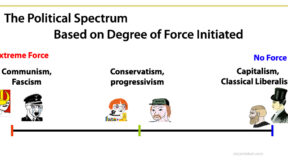Krugman writes in his recent article called permanent slum that our current depressed economy and high unemployment might be the new norm. Of course this type of economic trend has been experienced by Europe, where Krugman’s policies are more broadly adopted, for decades now.
Even though Krugman seems to be admitting that his easy money, high government stimulus policies cannot bring us out of the slump, he is still unwilling to admit that they may be in fact causing it. Krugman provides a collection of excuses of why the economy is going to stay depressed even as the easy money policy is going to roll on, setting up essentially a plausible deniability argument. So let me get this straight. After implementing a number of policies such as stimulus, Obamacare, auto industry bailouts, tax increases, and easy money, the result isn’t due to failure of those policies, but because the slump was going to happen anyway?
This type of backpedalling by the political left is not new. When economic reality catches up, and the promises or predictions become an apparent failure, they always turn around and claim that things would have been worse otherwise, and its not their fault.
Krugman does ask one right question.
“Without demand, how are we supposed to return to full employment? “
The question is then, how do we increase demand? Krugman’s running assumption is that demand can be increased by increased government spending or easy money. However, demand and consumption is just a consequence of a different human action called production. You have to produce something, before you can consume it. So in order to increase demand in a way that is not a bubble you have to increase production. The fact is that both government spending and easy money, discourages production, and thus in turn decreases demand. All that government spending does is moves resources from private sector to government sector. Private sector is on average much more productive than government, and so such movements decrease productivity. Easy money further decreases the productivity of the private sector by incentivising them to take greater risks, and funneling investments into less productive ventures, that otherwise would not have been considered under higher interest rates.




